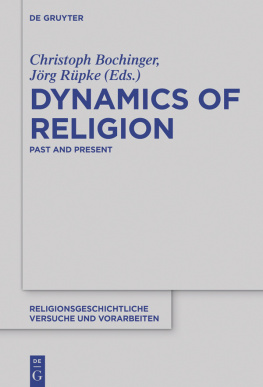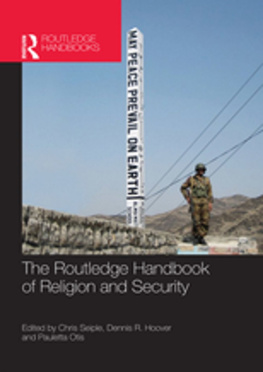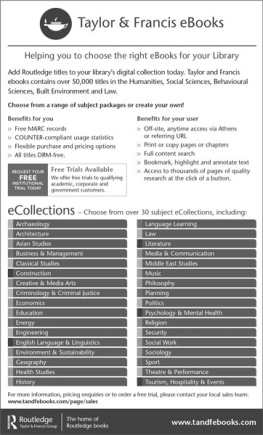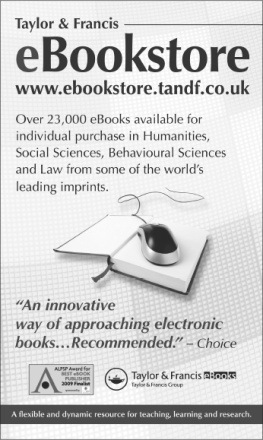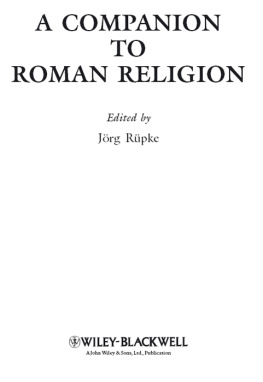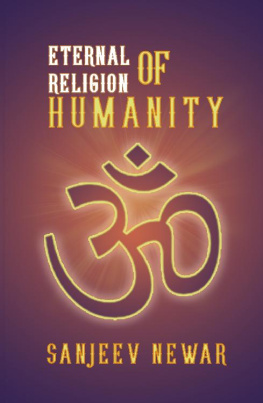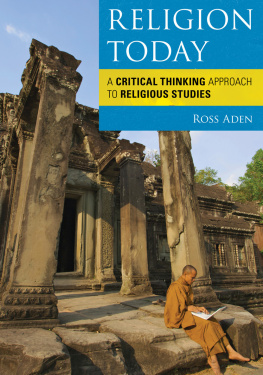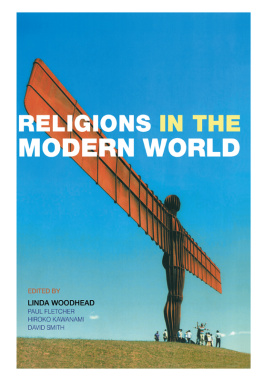First published 2010 by Ashgate Publishing
Published 2016 by Routledge
2 Park Square, Milton Park, Abingdon, Oxon OX14 4RN
711 Third Avenue, New York, NY 10017, USA
Routledge is an imprint of the Taylor & Francis Group, an informa business
Copyright 2010 Slavica Jakeli
Slavica Jakeli has asserted her right under the Copyright, Designs and Patents Act, 1988, to be identified as the author of this work.
All rights reserved. No part of this book may be reprinted or reproduced or utilised in any form or by any electronic, mechanical, or other means, now known or hereafter invented, including photocopying and recording, or in any information storage or retrieval system, without permission in writing from the publishers.
Notice:
Product or corporate names may be trademarks or registered trademarks, and are used only for identification and explanation without intent to infringe.
British Library Cataloguing in Publication Data
Jakeli, Slavica.
Collective religions : religion, choice, and identity in late modernity.
1. Religion and sociology--Europe. 2. Catholic Church--Bosnia and Hercegovina. 3. Catholic Church--Croatia. 4. Catholic Church--Slovenia. 5. Identification (Religion) 6. Europe--Religion--21st century.
I. Title
306.6'094-dc22
Library of Congress Cataloging-in-Publication Data
Jakeli, Slavica.
Collectivistic religions : religion, choice, and identity in late modernity / by Slavica Jakeli.
p. cm.
Includes index.
ISBN 978-0-7546-7883-0 (hardback)
1. Christian sociology--Europe. 2. Nationalism--Religious aspects--Christianity. 3. Christian sociology--Catholic Church. 4. Nationalism--Religious aspects--Catholic Church. 5. Identification (Religion) I. Title.
BR735.J25 2010
306.6'74--dc22
2010008671
ISBN 9780754678830 (hbk)
ISBN 9781315572710 (ebk)
Acknowledgements
This book has been a long time coming, and many people and institutions have made it possible:
Vesna Pusi, who believed in me and who opened the door of the American academy to me;
Adam Seligman, my teacher, a model of scholarly excellence and intellectual integrity, who saw this project from its inception to its completion with a commitment I can never repay;
Peter Berger, who invited me to join his institute at Boston University and supported my earliest academic pursuits;
Jennifer Geddes, Charles Mathewes, and Joshua Yates, whom I was so fortunate to have to read my work charitably, critically, and constructively over the past five years;
Emmanouela Grypeou, Claire Mitchell, and Dariusz Tolczyk, who read and commented on different sections of this book, and who were indispensable for my understanding of religions in societies I had learned about primarily through books;
The late Katja Margeti, Kate Saboli, Inga Tomi Koludrovi, Ozren unec, Sabine MacCormack, Wesley Wildman, Paula Fredriksen, and the late John Clayton, scholars and teachers, who showed me that the path to loving the world of ideas is not one but many;
The Institute for Advanced Studies in Culture, especially its director James Hunter, who generously provided the resources and intellectual context for my work from 2005 to 2009; Jenny Gladding, Emily Gum, Samantha Jordan, Susan Witzel, Marilyn Roselius, and Christy Robinson, the Institutes current and former staff members, who listened to me talk about my work and never complained; Shannon Anderson, David Franz, Murray Milner, Johann Neem, Christopher Nichols, Kevin Schultz, and Andrew Witmer, the Institutes former and current fellows, with whom I shared the wonderful experiences of reading and discussing some of the most important works ever written;
Katya Makarova, Krishan Kumar, and Jeff Olick, who graciously commented on my work and with whom I enjoyed the best kinds of conversationsthose that happen with good food and fine wine;
The 2001-2002 fellows and staff of the Institut fr die Wissenschaften vom Menschen in Vienna, who provided the audience for the first ideas about this project, particularly Professor Maria Todorova, whose uncompromising critique of the project only encouraged me to think deeper about its purpose;
Florian Ehrensperger, Bernd Goebel, Ruth Groenhout, Brian Lockey, Lara Mancuso, Elod Nemerkenyi, Sabine MacCormack, Dianne Phillips, Vincent Rougeau, and James Turner, the 2002-2003 fellows and colleagues at the Erasmus Institute at the University of Notre Dame, whose comments and insights greatly contributed to the progress of my work;
The Martin Marty Center at the University of Chicago and particularly its director William Schweiker, who gave me the opportunity to finish this book at one of the best universities in the world;
The many representatives of the Roman Catholic Church and colleagues in Bosnia, Croatia, and Slovenia, who knew they might not approve of everything I would write but nevertheless answered all of the questions I asked;
Neil Jordan, my editor at Ashgate, whose support and encouragement made the whole publication process seem easy;
Emily Gravett, whose patience in editing this book was saintly and whose editorial skills are the only reason the book is readable in English;
Frenki, Goran, Pero, Vesna, Jelena, Jenni, Lucie, Zdravko, Vera and Marko, Kristine and Rich, Jenny and Chuck, Molly and Josh, Marijana and Vinko, who cheered me, fed me, helped me move (several times, across and between continents), and remained my friends through it all;
My late grandmothers Pera Samardi and Kata Jakeli, Sisters Suzana and Anastazija Samardi, Duan and Ana Samardi, and Theresa and Jim Varsoke, my family who were there when I needed them most;
Petra, Ellen, Isabelle, Ben, Nina, Ryan, Beckett, Meredith, Bella Rose, and Henry, who make me think about the world as it could be tomorrow;
My dearest Petra, Nina, and Damir, because of whom visiting Split will always feel like coming home.
This book is dedicated to my parents, Kata and Ante, and my sister Suzi. It would have never been written without my husband Jason Varsoke. The four of them are proof that both the family we are born into and the family we choose constitute so much of who we are.


